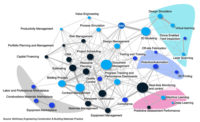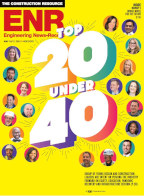Viewpoint: Finding the Right Role For Your Unique Skills
 |
| Landi |
We all have innate strengths and abilities that we use in our jobs and that come naturally to us—the skills necessary to manage a project, write specifications, produce design documents or create good estimates.
Yet some of us find ourselves going down rabbit holes every work day—and we don’t know why.
I read a book a decade ago that talked about individuals’ special skills or strengths. The premise was that if you can pinpoint your unique abilities and find a job or role that lets you use those, you will not only find success but also work enjoyment and career satisfaction.
Instead of looking at our knack for writing spreadsheet formulas, giving presentations, analyzing data or using the latest technology as distractions from work, we need to ask why we prefer to do these things and find a role that puts them at the core of our activity.
I once worked with a man who served as our IT manager, only to later find out that he has an architecture degree. At another company, an individual who started as on-site project staff became essential to projects and clients through his interest and affinity for building databases and data collection tools. And we all know people who found they were far happier selling than doing design or construction services.
I have an undergraduate degree in architecture and a master's in construction, but I excel at collecting data and analyzing it, and developing strategies and managing their implementation.
I was very lucky to work for some really great bosses that saw my talents even before I did. At their behest, I took on tasks I would have never asked for and found my niche. I’ve used those skills to develop company websites, customize third-party software for internal company use and manage proprietary software. The analytical and strategic skills also made me a unique seller of AEC services.
Conventional to Unconventional
But what if you don’t have a mentor that leads you down this new path? How can people like us—with conventional architecture, engineering and construction backgrounds—find unconventional positions that better match what we’re really good at?
Ask yourself: what work do you do when you are procrastinating other work? When you are asked to prepare a presentation, do you spend most of your time on the charts and graphs to avoid thinking about speaking publicly? Do you prefer to research than to implement? These are examples of your strengths presenting themselves.
Find print or web-based personality and skill assessments. Combined with your self-analysis, these might provide you with a new perspective, or even suggest roles you may not have considered before.
Look for what your company, project or client needs. Is something “broken” in the company or the process? How can that be fixed? Is there an easier, better or faster way to accomplish the goal?
If the solution does not include the use of your unique ability it is still worth bringing up to management. This will establish you as a person with solutions, and open the door for future suggestions.
Develop a plan. If you have the solution to the problem, how can you make it happen? What is your role or, more importantly, how would you lead this endeavor? Develop a brief statement of the problem, your proposed solution and your role.
The proposal should include an approach to try your new idea, milestones for success and a way to review the results. New ideas with set schedules and measurable outcomes are more likely to get approval.
Find an advocate. Good companies realize the only thing they truly sell is their people. If managers are not encouraging and developing their employees, they are simply creating turnover.
Retention Game
In the retention game, helping employees identify their innate strengths and find the right position could be a far more effective tool than financial incentives.
If you are in a company that recognizes this, find someone in a more senior position who can see the value of your proposal and help you achieve this new role. Present this idea as beneficial to the team, not just yourself, and you are more likely to get approval.
The more equity at all levels of the organization, the better your chances of success.
Don’t be discouraged. Not all companies are going to be open to atypical roles and new methods. Even if your abilities and your ideas have to wait for the next company, your effort was not wasted. You may have just come up with the best selling point for your next interview.
Mara Landi has more than 20 years of experience in the design and construction industry. Since 2006, she has filled numerous roles at Broaddus & Associates, an Austin, Texas-based program management and planning firm—including opening a Gulf Coast office, designing and managing two proprietary softwares, establishing company standards, customizing customer relationship management tools, training, marketing, business development, and project management of atypical projects. She can be reached at MLandi@BroaddusAssociates.com.





